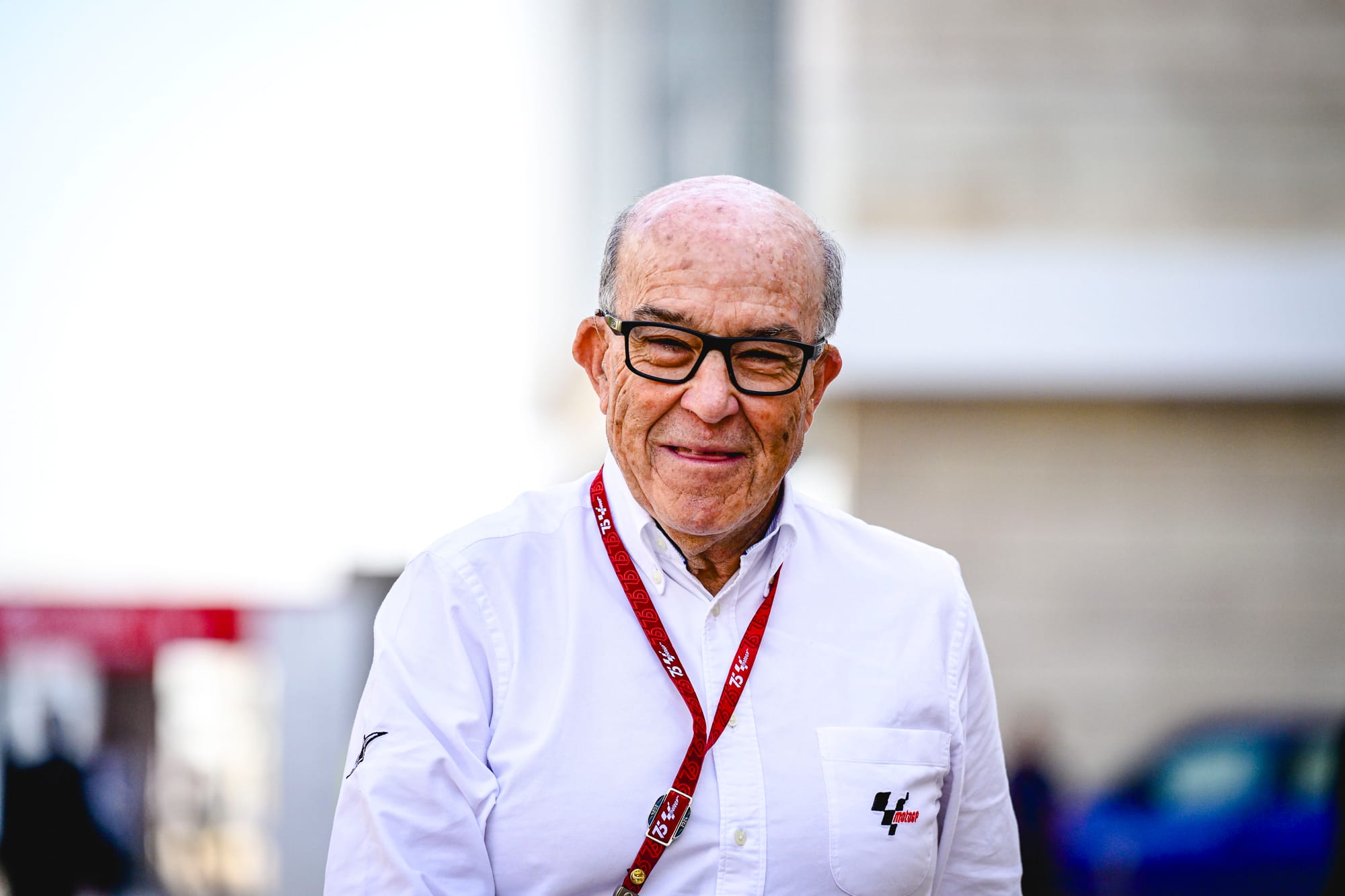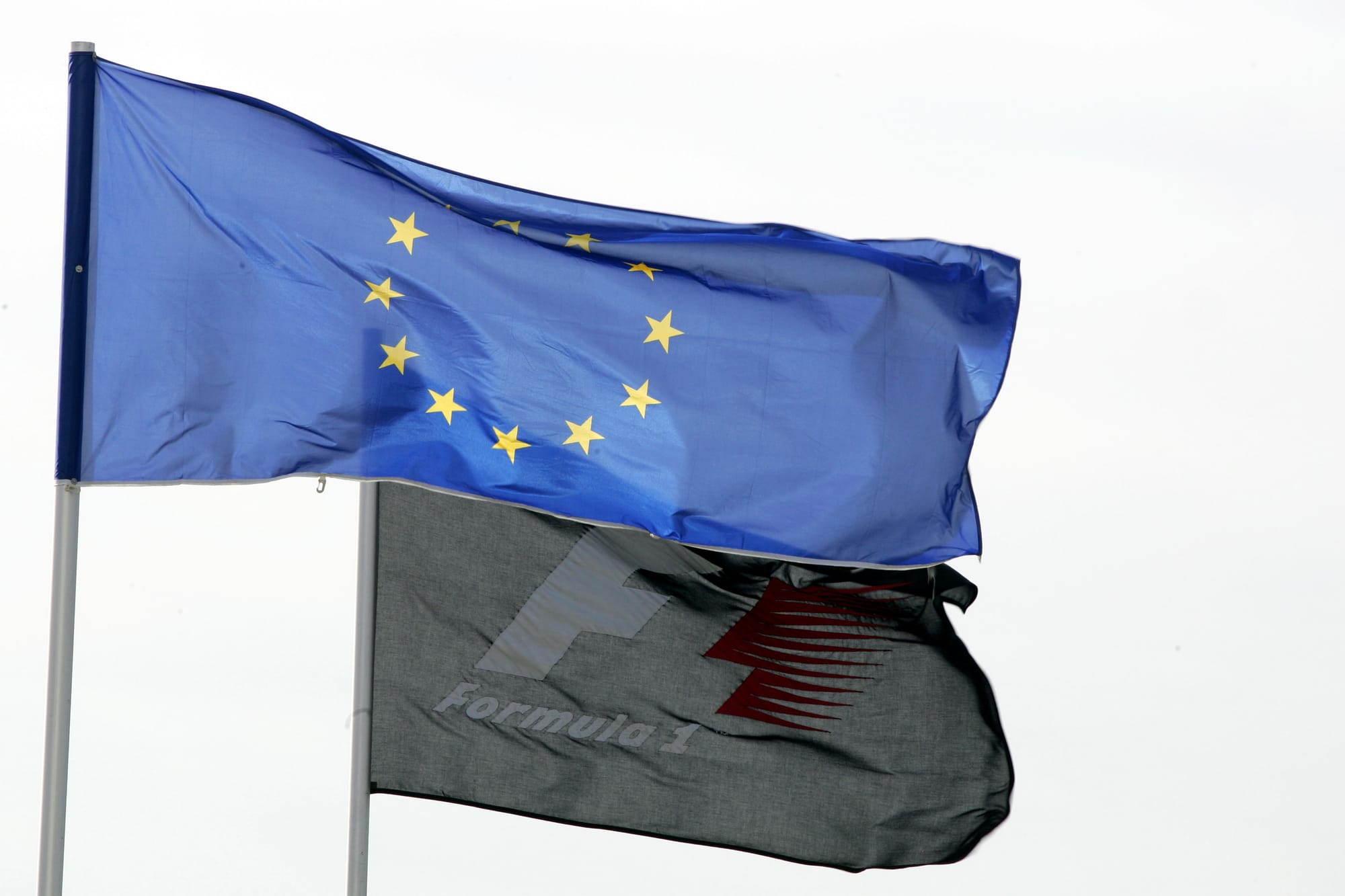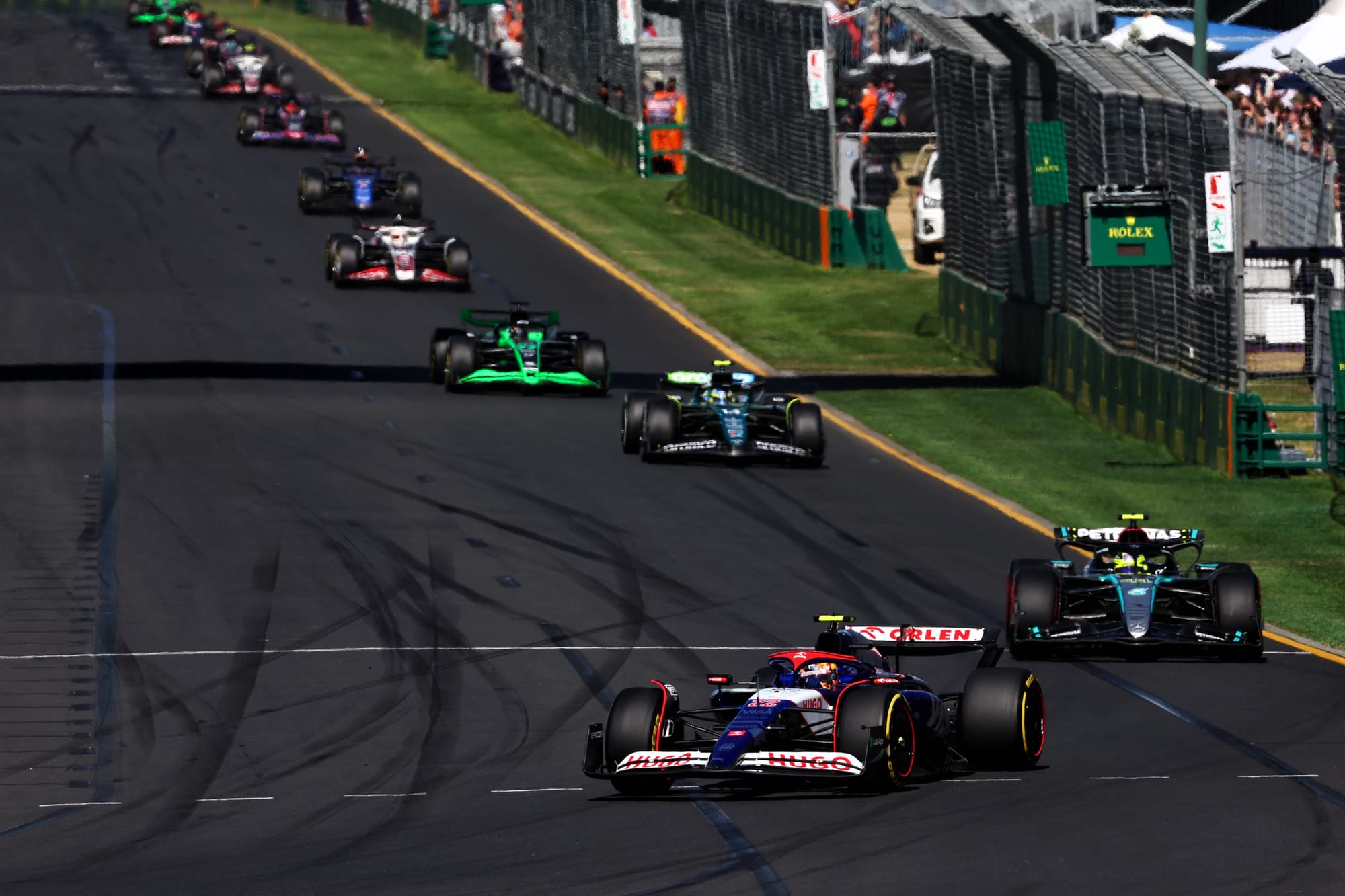Up Next

A report from leading British newspaper the Financial Times has suggested that a successful offer to buy MotoGP and World Superbike promoter Dorna is imminent from F1 rights holder Liberty Media, escalating rumours from late last month suggesting that the American spots giant was interested in expanding its motorsport portfolio by taking over the two-wheeled series.
The FT has suggested that Liberty has won in a bidding war that also involved Qatar Sports Investments, the state investment fund that owns French football club Paris Saint-Germain, and William Morris Endeavor, an American sports agency that also owned the Ultimate Fighting Championship (and whose interest had been flagged up repeatedly by The Race’s sources).
At face value, that doesn't come as a big surprise. There's been open speculation for some time that Dorna has been quietly placed on the market by current owner Bridgepoint Capital, while Dorna CEO Carmelo Ezpeleta hasn’t exactly been silent on the prospect of a sale.

There were other hints about the way that the business has quietly restructured financially in recent years that also suggested Bridgepoint had been preparing for a sale. The company has taken on substantial debt in the form of loans to pay out dividends to the currency owners - a standard business tactic ahead of a potential sale.
Dorna is currently 39%-owned by investment fund Bridgepoint, with Canadian public pension fund CPPIB owning a further 31% (sold to it by Bridgepoint in 2012) and the Ezpeleta family the majority owners of a further 20% of the business held by a collection of current and former employees.
However, the Financial Times' reporting also highlights one key roadblock to any proposed sale - the ability to get the deal approved by the EU’s monopolies commissioner, a broadly influential position with the power to shut down any potential takeover.
Bridgepoint first acquired Dorna in 2006 when previous owner CVC Capital Investment was forced by the EU to place it up for sale following its acquisition of F1.

The regulators could rule the situation hasn’t substantially changed in the meantime.
“I’d be very surprised if competition regulators didn’t look at it,” James Killick, a competition lawyer at White & Case, told the FT. “The question is, has the market changed?”
That’s a hard question to answer right now, of course, and will likely take months of analysis by the EU commission before a prospective sale to Liberty can either be approved or denied - but with F1’s controlling hold on the global motorsports market off the back of the success of Netflix documentary Drive to Survive, it’s all but impossible to see a situation where judgment isn't passed before any takeover can go ahead.
That is, of course, likely to be something that Liberty and Dorna have already taken extensive legal advice on before proceeding with any advanced negotiations, even if the decisions of the monopolies commission often to come as something of a surprise when they rule against major companies.
The Race Says
Valentin Khorounzhiy

The spectre of F1 owner Liberty taking the reins in MotoGP, too, looks like it will be met no shortage of doubt and hostility from at least some portion of the latter's established hardcore fanbase.
And for the most part, that is not an instinct to really argue against. There is never a guarantee after all - in any walk of life, so by necessity also in sports - that a takeover at the top will trickle down in a positive way to those who take in the end product, which in this case is MotoGP racing via broadcasts or live attendance.
But in Liberty's case's specifically, though MotoGP fans will understandably harbor mistrust at the idea of F1's owner trying to run their favourite series like F1, it would be exceptionally difficult to make the case that Liberty's ownership of F1 has been in any way a net negative.
Some will make that case, and the actual on-track F1 product hasn't exactly dazzled in the last year and a half. Not everything is rosy in F1.
Yet it's also clear that Liberty's reign has brought a more modern touch to a sport that was clearly crying out for it under its previous ownership, and that F1 is absolutely feasting on promoter interest and feels at liberty to actually reject meaningful new team entries (whether that's popular or valid is a different point of discussion).
Under Liberty's stewardship, F1 was not only steered successfully through COVID but made bigger in terms of popularity. Every team that was there when it came in remains on the grid in some form. None of them are in imminent danger of dropping out - most of them, it seems, have ballooned in valuation.
At the very least, this is capable prospective owner.



